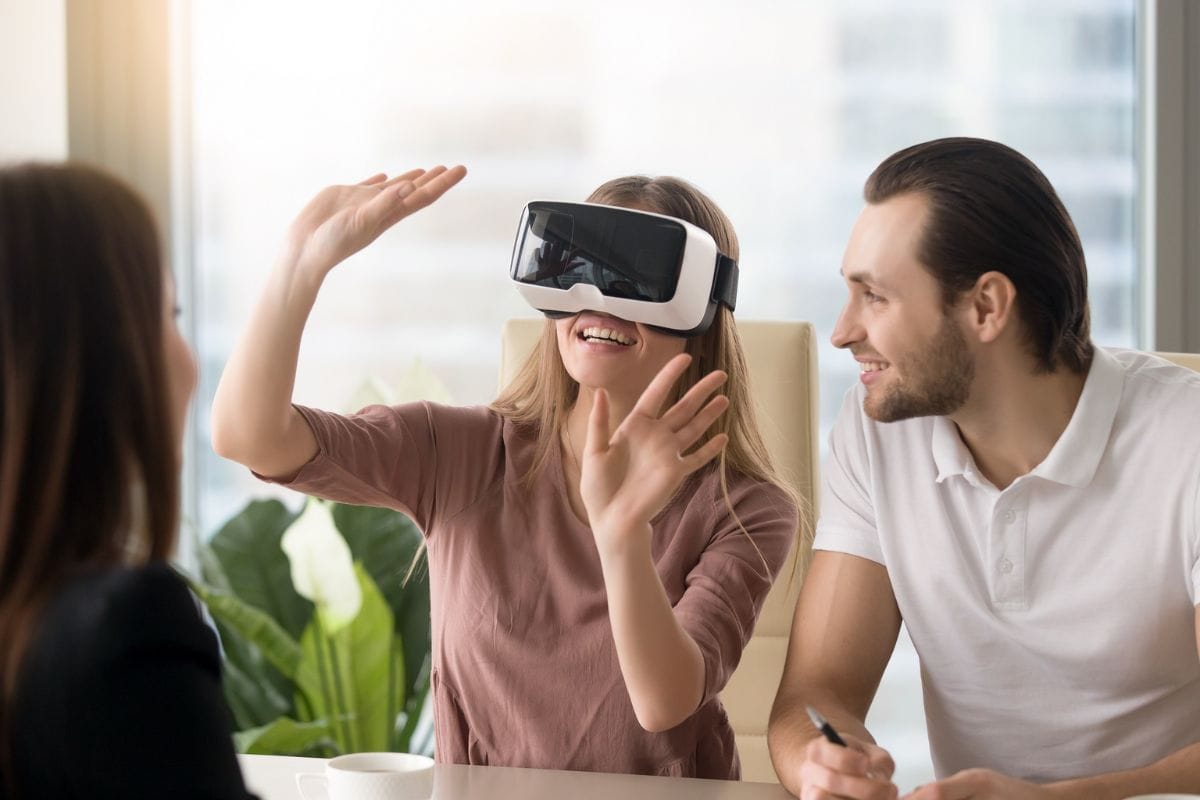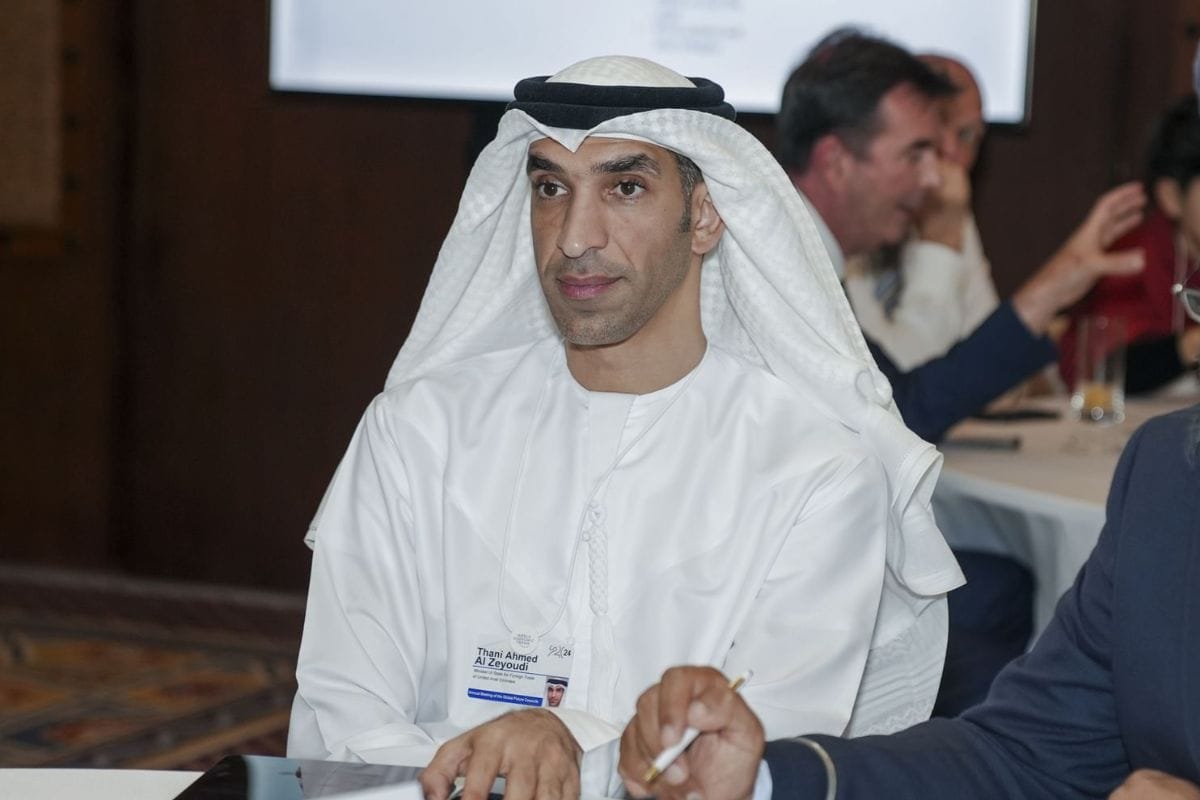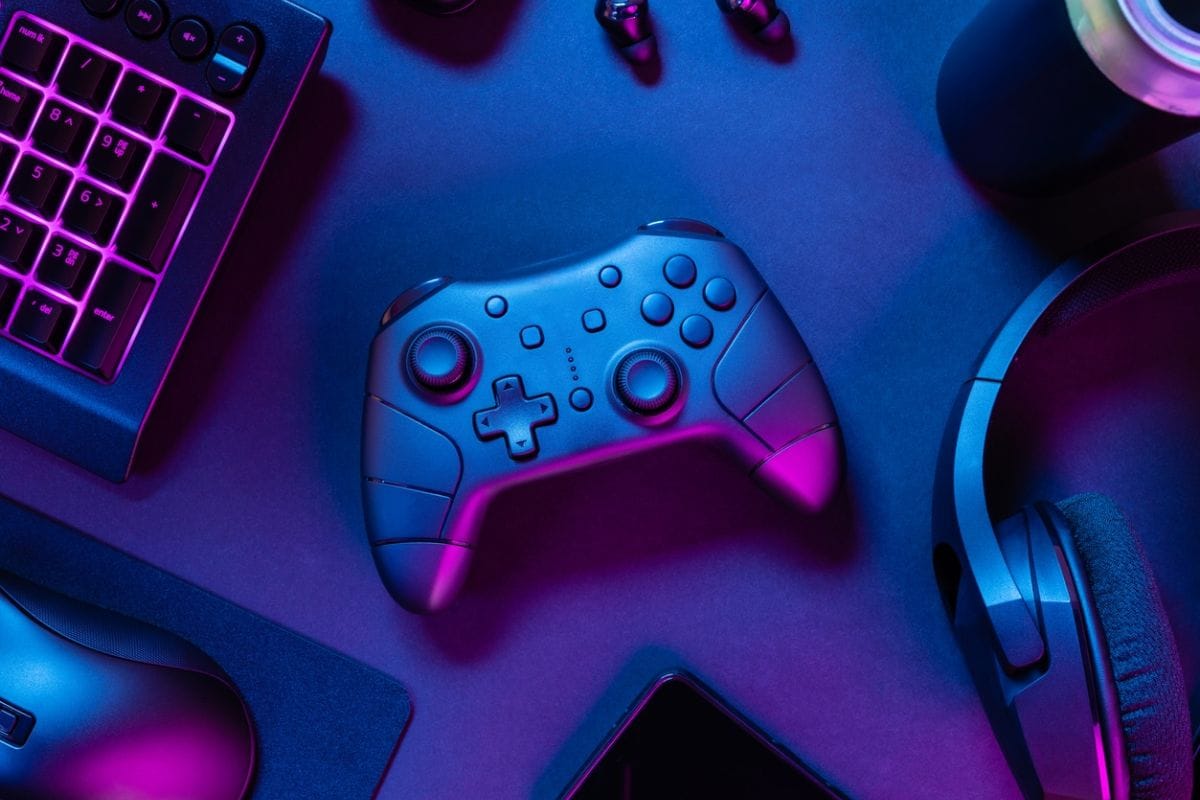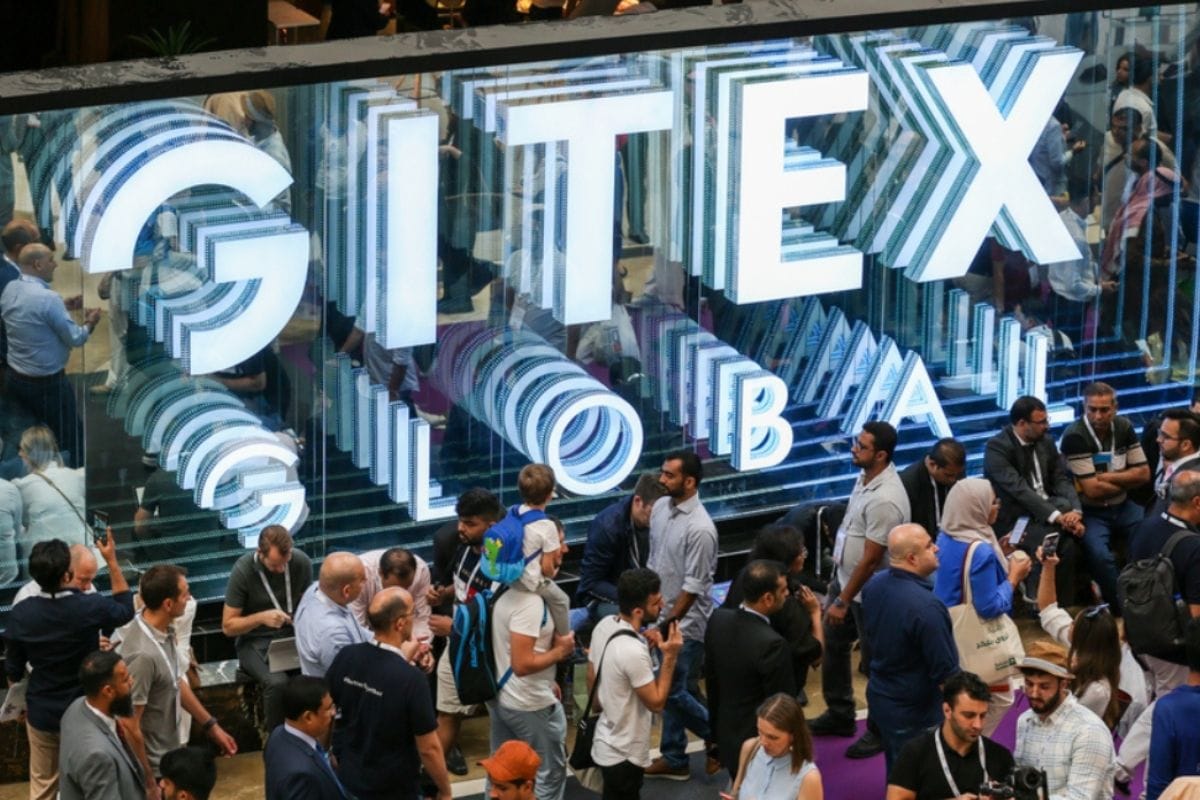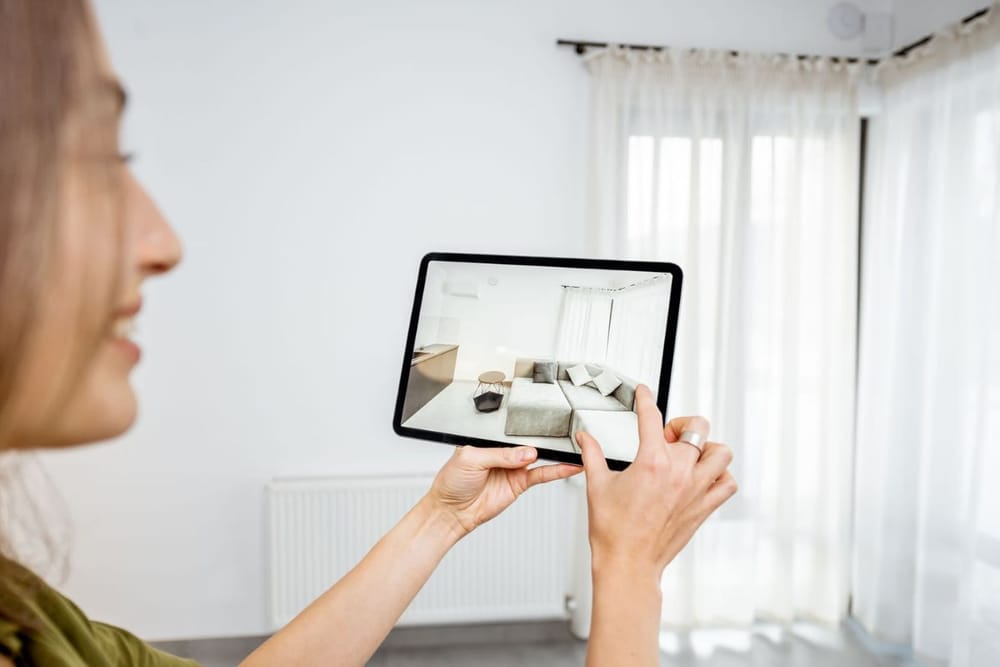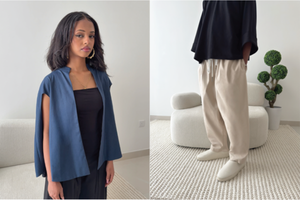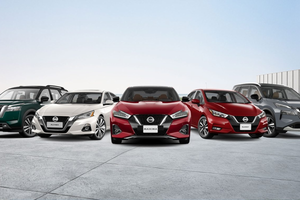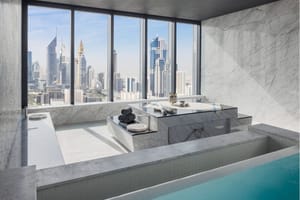Imagine scrolling through an online store and being able to place that designer chair in your living room or test how a new watch fits your wrist—all before clicking “buy.” This is the reality that AR is bringing to online shopping, with studies showing that AR experiences can boost online conversion rates by as much as 40% and reduce product returns by over 25%. Globally, AR is set to make waves in online retail, but in Dubai, the transformation is even more pronounced.
Dubai’s high-tech infrastructure and luxury-driven consumer base make it an ideal location for pioneering AR in online retail. With one of the highest smartphone penetration rates in the world and a market increasingly focused on convenience and cutting-edge experiences, Dubai is leading the charge. Local retailers are already leveraging AR to offer customers a preview-before-purchase experience that aligns perfectly with Dubai’s progressive retail market.
In this article, we’ll explore how augmented reality is transforming the online shopping experience in Dubai, from enhancing customer engagement to boosting sales conversions. We’ll dive into the benefits for retailers and consumers alike and look at why Dubai is emerging as a leading hub for AR-driven retail innovation.
Understanding Augmented Reality in Retail
Augmented reality (AR) in retail integrates digital elements—like images, sounds, or other sensory projections—into the physical world via screens, cameras, or smart devices. In retail, AR allows customers to interact with virtual representations of products, bridging the gap between physical and online shopping by making online products “tangible.” This technology leverages 3D modeling, spatial mapping, and real-time image recognition to place items within a customer’s immediate environment, offering an immersive experience that traditional online shopping can’t provide.
Examples of AR Features
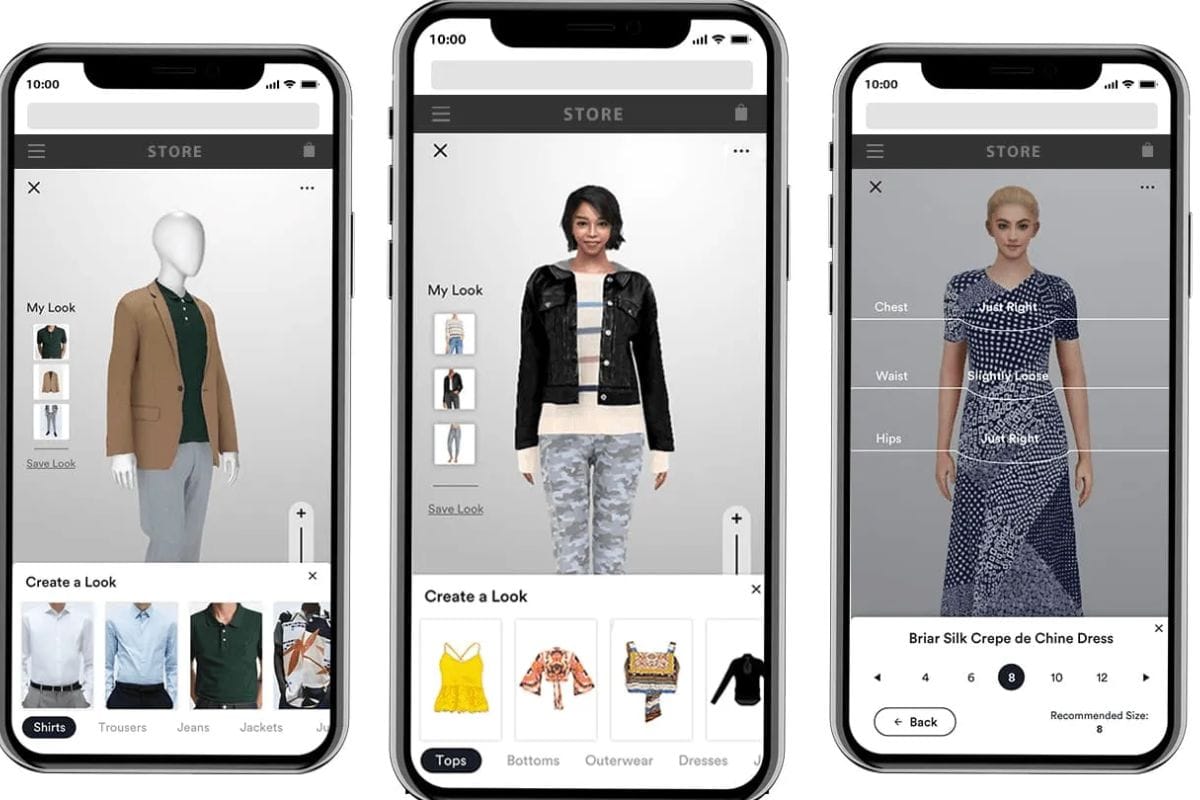
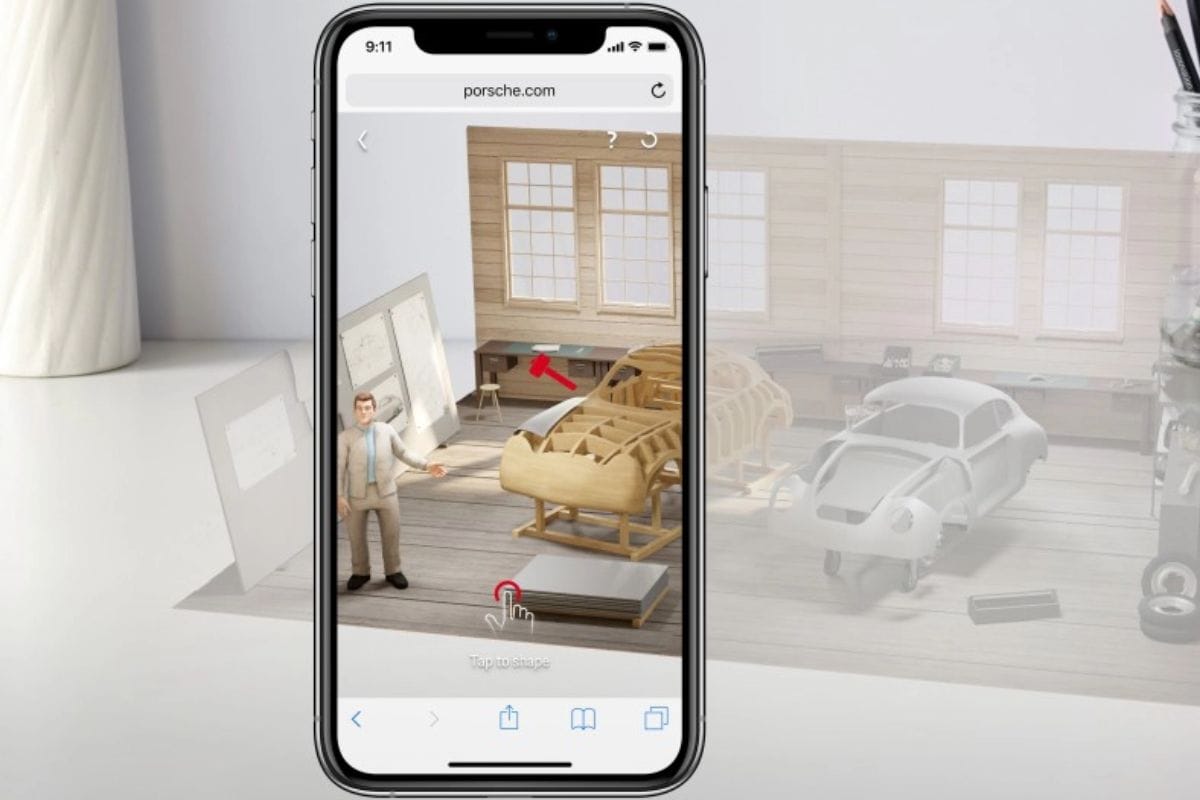
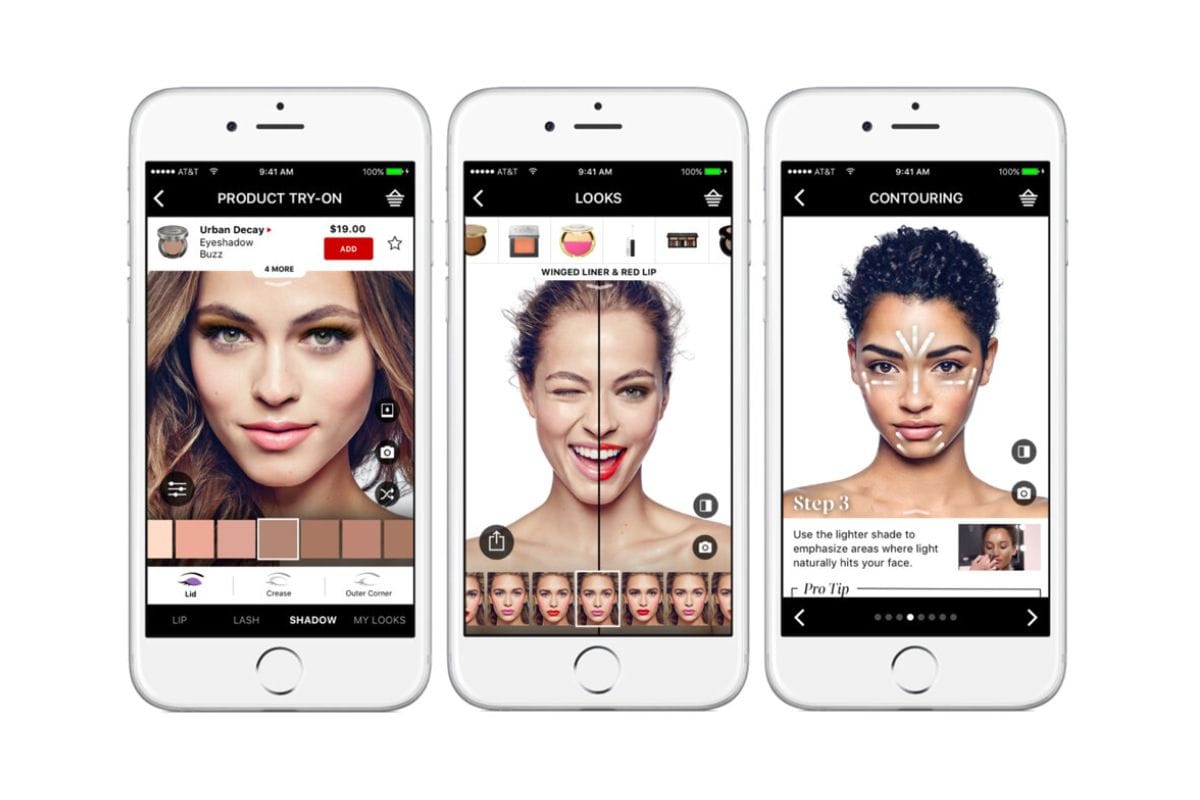
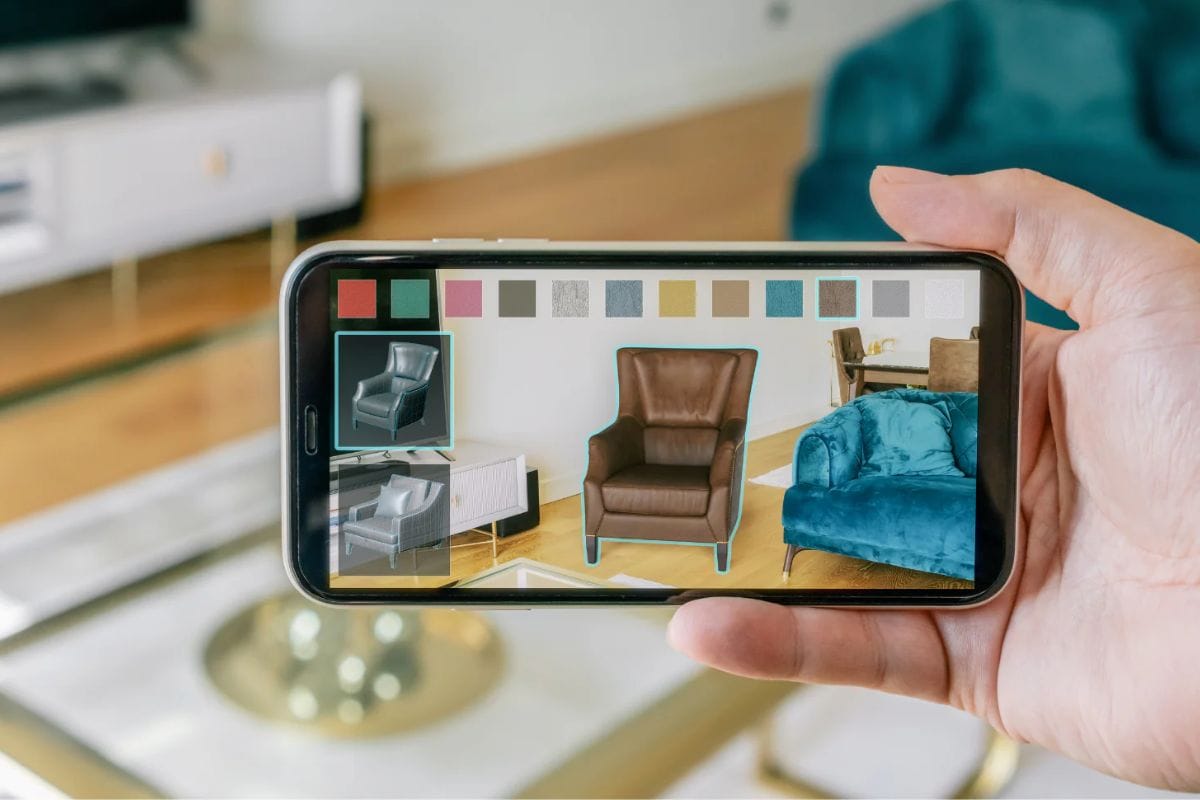
Virtual Try-Ons
Using facial recognition and machine learning, AR can virtually overlay products such as makeup, accessories, or eyewear onto customers' faces or bodies. This is commonly used by beauty brands (like L’Oreal and Sephora) to allow customers to “try on” different shades or styles without physically applying the products.
3D Product Views and Placement
AR enables customers to visualize products in 3D and project them into their own spaces. This feature is especially beneficial for furniture and home decor shopping, where consumers can see how an item fits and complements their home’s layout, size, and design.
Interactive Product Demonstrations
Certain AR applications provide guided demonstrations, showing customers how a product works or can be assembled. This is achieved using detailed animations and tutorials that are activated when a user scans a product with their mobile device or clicks on an interactive icon. This is widely seen in electronics, where companies use AR to show the inner mechanisms of gadgets or machinery.
Immersive Brand Experiences
Some retailers use AR to create a story around their brand. By offering interactive experiences, brands can showcase their products in a specific lifestyle context. For instance, luxury fashion brands use AR to project collections onto models or virtual “showrooms” that customers can browse.
Benefits for Shoppers
- Realistic Visualization: AR allows customers to see realistic, to-scale products in their environments, making it easier to assess dimensions, colors, and fit, and thus reducing uncertainty.
- Informed Decision-Making: By enabling virtual try-ons and product placements, AR helps customers make more confident purchases, particularly with items that are hard to judge online (e.g., furniture, clothing, cosmetics).
- Enhanced Engagement and Personalization: AR’s interactive features keep customers engaged longer on a retailer’s platform. By using data analytics, AR tools can also customize product suggestions based on browsing history or previous interactions, offering a more personalized shopping experience.
The Growth of AR in Dubai's Retail Market
Dubai is uniquely positioned to lead AR innovation in retail due to a blend of supportive governmental policies, a high-tech infrastructure, and a market primed for digital adoption. Dubai’s government actively encourages tech adoption through initiatives like the Dubai 10X program, which aims to place Dubai 10 years ahead of other cities in terms of technology. This includes support for digital retail technologies, including AR, through partnerships, funding, and streamlined approval processes. Additionally, Dubai’s “Smart City” project has established a digital-first infrastructure, encouraging private and public sectors to integrate advanced technologies.
Moreover, Dubai’s extremely high smartphone penetration—over 99%—supports the seamless use of mobile-based AR applications, a vital factor for AR-driven shopping experiences. This aligns well with the city’s largely young, tech-oriented population, where millennials and Gen Z consumers expect personalized, digital retail interactions. This demographic’s demand for engaging and innovative shopping methods is a primary driver for AR adoption, helping retailers differentiate themselves in a competitive market.
Retailers Leading the Way
Several retailers in Dubai are pioneers in integrating AR to enhance customer experiences and streamline decision-making:
IKEA Place App
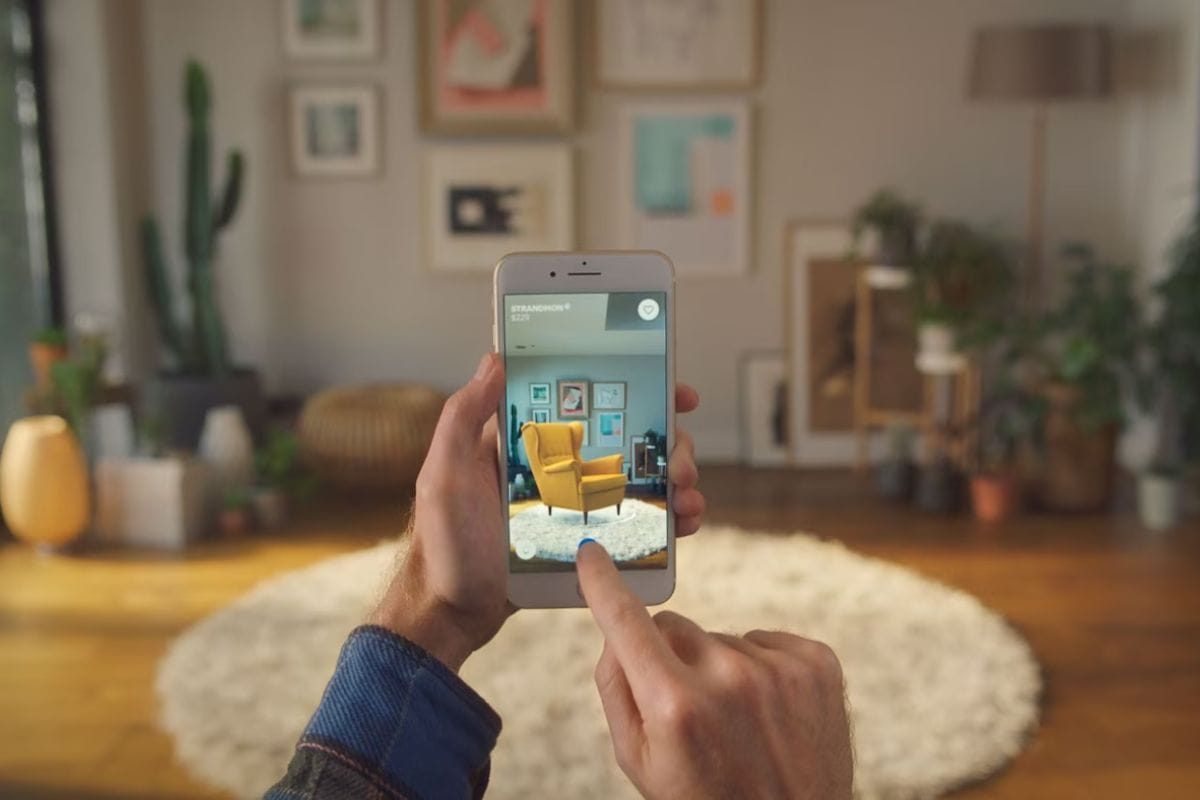
IKEA UAE leverages its IKEA Place app to allow customers to place life-sized furniture models within their own homes. Using advanced spatial mapping, users can rotate, resize, and visualize items in realistic dimensions. This integration has proven successful in bridging the gap between online browsing and in-store experiences, with a noticeable impact on customer satisfaction and purchasing confidence.
Sephora Virtual Artist
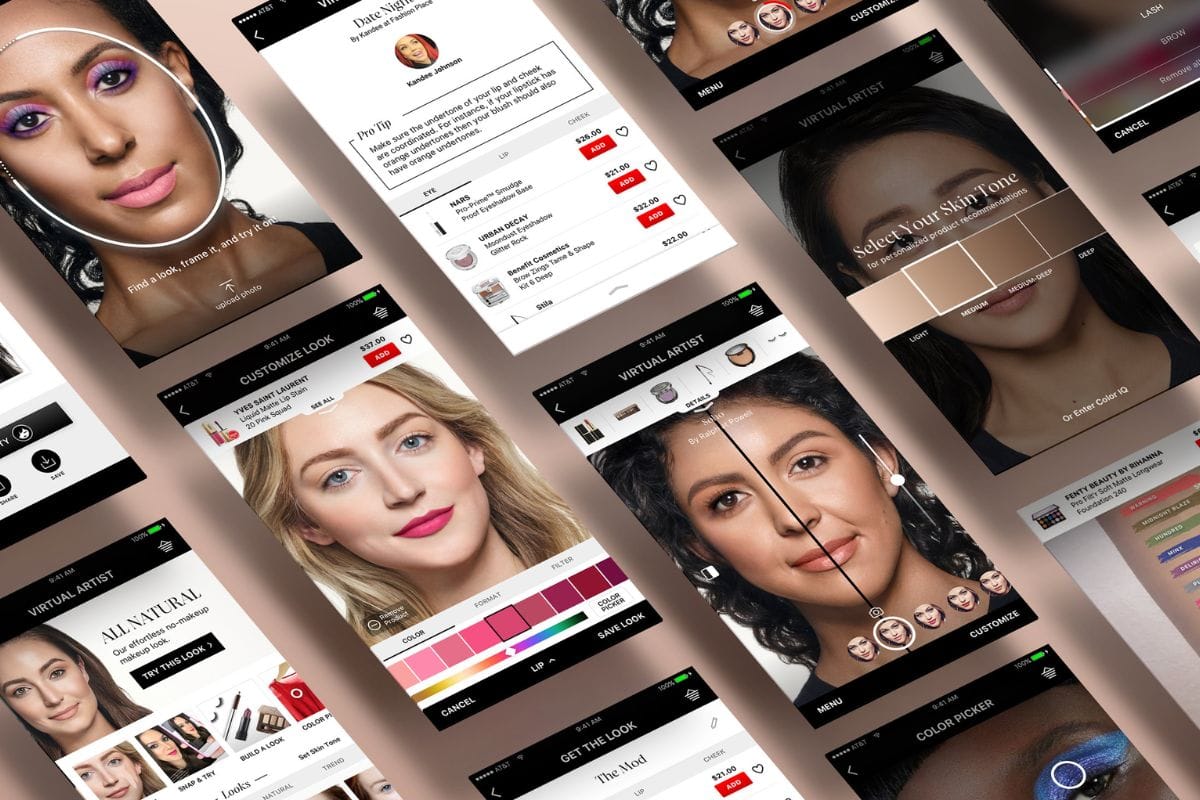
Sephora’s UAE branches feature the globally recognized Virtual Artist tool, which allows users to try on various makeup products virtually. This AR feature is tailored to enhance customer experience, reduce the return rate, and collect valuable insights into customer preferences. By making shopping for cosmetics interactive, Sephora has redefined how customers choose products online.
Mall of the Emirates Interactive Experiences
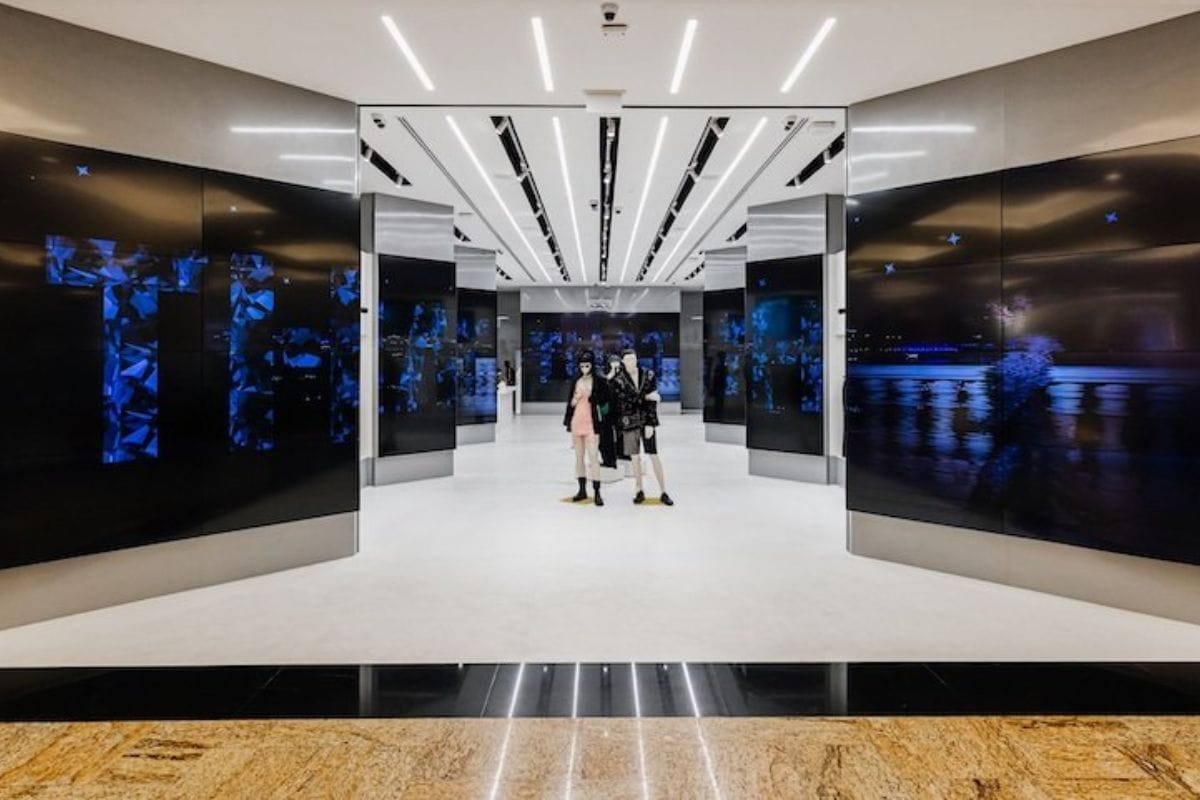
The Mall of the Emirates has embraced AR to enhance in-store engagement with digital displays and interactive pop-ups. Partnerships with brands like Prada and Nike have led to immersive events, like virtual product trials and AR games. These experiences attract foot traffic and provide customers with a blend of physical and digital shopping in a single visit, making the mall a hub for “phygital” retail.
Challenges and Opportunities for Retailers
Augmented reality (AR) adoption in Dubai's retail sector presents a mix of challenges and unique opportunities that are shaping the industry. The high costs of implementation are a significant hurdle, especially for smaller retailers. Building AR solutions requires investments in advanced hardware and software, with comprehensive setups potentially reaching six figures.
Furthermore, AR applications demand substantial processing power and high-resolution graphics, which can strain mobile devices and store networks. To enable seamless in-store AR experiences, many retailers need to upgrade to high-speed Wi-Fi or 5G networks—an added expense that requires technical infrastructure improvements. Additionally, there is a skills gap, as AR deployment involves expertise in content creation, 3D modeling, and app development, areas in which many retailers lack in-house talent.
Despite these challenges, AR offers Dubai's retailers powerful tools to enhance customer engagement and brand loyalty. AR applications provide immersive experiences, such as virtual try-ons and product visualizations, which create a memorable shopping journey that resonates with Dubai's luxury market. This capability gives brands a competitive edge, allowing them to stand out in a bustling retail environment that values innovation and exclusivity.
AR also supports a seamless omnichannel experience, bridging the gap between online and offline shopping by allowing customers to preview in-store products from home. This “phygital” approach is well-suited for Dubai’s tech-advanced ecosystem, where initiatives like Smart Dubai and Dubai 10X are paving the way for digital transformation in retail.
Overall, while technical and financial hurdles remain, Dubai's forward-thinking market and robust tech infrastructure make it an ideal environment for retailers looking to leverage AR for both personalization and growth.
As Dubai strives to become a global tech hub, augmented reality (AR) is poised to become a staple in its retail market. Government initiatives like Smart Dubai and Dubai 10X are accelerating this transformation, making AR-driven experiences more mainstream and accessible.
For retailers, AR offers a distinct advantage by enabling interactive, customized shopping that aligns with Dubai’s luxury market. As AR becomes part of everyday retail, shoppers in Dubai have the chance to experience a blend of digital and physical worlds—a glimpse into the future of shopping.
Also read:
